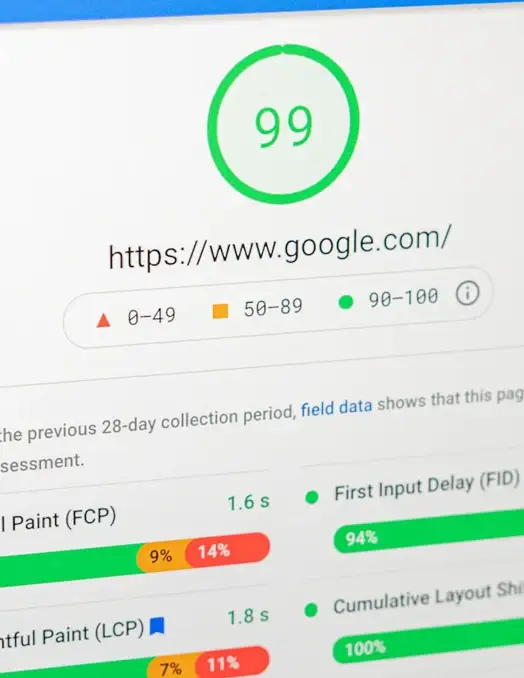
Search engines, led by Google, prioritize providing the best user experience. As part of this mission, page speed has become a critical factor in search engine algorithms. Faster websites are perceived to offer better user experiences. As a result, they rank higher in search results. This means that your website's load speed directly influences how easily potential customers can find your business online.

With over half of all internet traffic coming from mobile devices, your website's mobile performance is non-negotiable. Mobile users often access the web on the go, with varying levels of connectivity, making load speed even more critical. Google's "Speed Update" made page speed a ranking factor for mobile searches, reinforcing the importance of optimizing your website for mobile users to stay competitive. A responsive or mobile-optimized website is a good start, but if it doesn't load quickly, you risk losing potential customers. Accelerated Mobile Pages (AMP) and Progressive Web Apps (PWA) are technologies aimed at improving mobile page speed. Consider incorporating them into your design as part of your mobile strategy.
